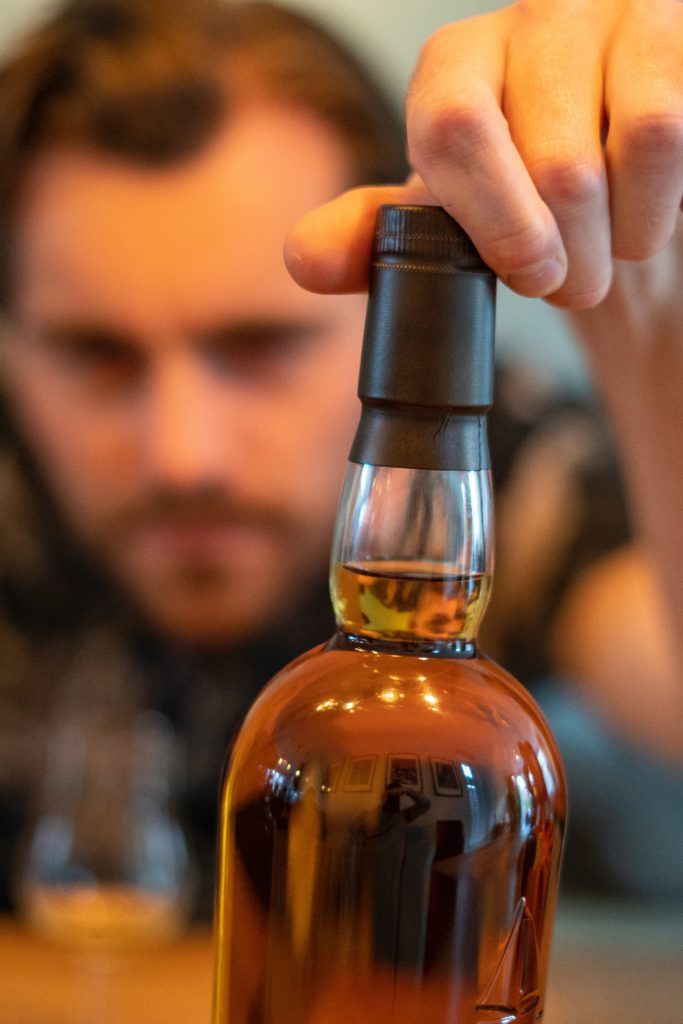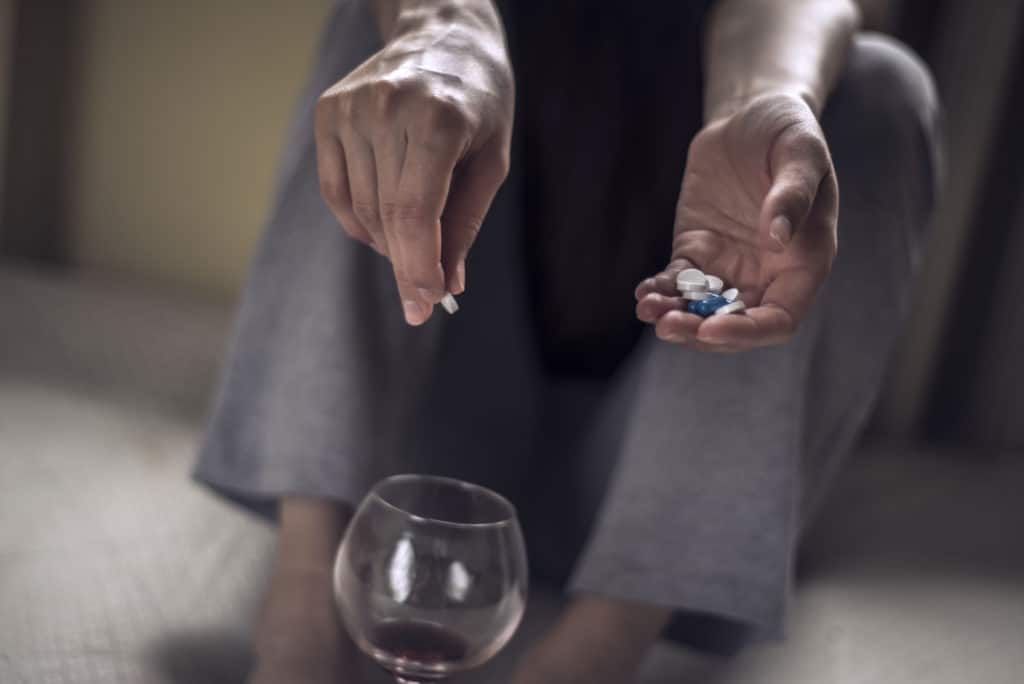Does alcohol thin blood? Is it possible?
Does alcohol thin blood? Alcohol can thin your blood because it prevents blood cells from sticking together and forming clots. This may lower your risk for the type of strokes caused by blockages in blood vessels.
Yet because of this effect, drinking alcohol could potentially increase your risk for the bleeding type of strokes — especially when you drink it in large quantities. For men, this means more than two drinks a day. For women, this is more than one drink a day. Alcohol use — especially in excess — can also pose other risks to your health. Keep reading to learn more about this blood-thinning effect, how alcohol interacts with blood-thinning medications, and more.
How does alcohol thin blood?
When you’re injured, blood cells called platelets rush to the injury site. These cells are sticky, and they clump together. Platelets also release proteins called clotting factors that form a plug to close the hole. Clotting is beneficial when you’re injured. But sometimes, a blood clot can form in — or travel to — an artery that supplies your heart or brain with oxygen-rich blood. Clotting of the blood is called thrombosis.
Does alcohol thin blood? When a clot blocks blood flow to your heart, it can cause a heart attack. If it blocks the blood flow to your brain, it can cause a stroke. Alcohol interferes with the clotting process in a couple of ways:
- It reduces the number of platelets in the blood, in part by interfering with blood cell production in the bone marrow.
- It makes the platelets you do have less sticky.
Drinking a glass or two of wine each day might reduce your risk for heart disease and strokes caused by blockages in blood vessels (ischemic strokes) in much the same way that taking a daily aspirin can prevent strokes. But having more than three alcoholic drinks daily could increase your risk for a type of stroke caused by bleeding in the brain (hemorrhagic strokes).

Does alcohol thin blood? Is this a short-term effect?
How long does alcohol thin blood? In people who drink moderately, the effect of alcohol on platelets is short-lived.
Moderate drinking is classified as follows:
- For women of all ages: up to one drink per day
- For men age 65 or older: up to one drink per day
- For men younger than age 65: up to two drinks per day
Examples of one drink include:
- a 12-ounce beer
- a 5-ounce glass of wine
- 1.5 fluid ounces, or a shot, of liquor
But in people who drink heavily or suffer from alcoholism, there can be a rebound effect in which the bleeding risk increases, even after they’ve stopped drinking. Exceeding the recommended guidelines above is considered heavy drinking.
Can you drink alcohol instead of taking a blood thinner?
No. Blood thinners are drugs your doctor prescribes to prevent blood clots that can cause a heart attack or stroke. If your doctor has prescribed one of these medicines, it’s because you have heart disease or another condition that increases your risk for clots. Alcohol isn’t safe to use as a blood thinner. Not only can it increase your chance of having a bleeding stroke, but in large quantities, it also puts you at greater risk for:
- Stomach bleeding
- Cancers of the breast, mouth, throat, liver, colon, and esophagus
- Birth defects and miscarriage when used during pregnancy
- Alcohol dependence or alcoholism
- Injuries due to falls, motor vehicle accidents, and other types of accidents
- Sexually transmitted diseases (STDs) due to risky sexual behaviors
- Liver disease
- Depression
Can you drink alcohol while taking blood thinners?
Does alcohol thin blood? Ask your doctor if it’s safe for you to drink alcohol while taking blood thinners. Both alcohol and blood thinners like warfarin (Coumadin) thin your blood. Taking both together could compound the anticoagulant effect and increase your risk of bleeding. Alcohol might also slow down the rate at which your body breaks down and removes the blood-thinning drug. This can lead to a dangerous buildup of the drug in your body.
If you do drink alcohol while on blood thinners, do so in moderation. That means one drink a day for women and men age 65 and older. For men under age 65, up to two drinks, a day is considered moderate.
Should you drink alcohol to help your circulation?
Does alcohol thin blood? Drinking alcohol in moderation may have a protective effect on your blood vessels. Some research finds that alcohol increases levels of high-density lipoproteins (HDL, aka “good cholesterol”). This healthy type of cholesterol helps protect your arteries and prevent blood clots that can lead to heart attacks and strokes.
Yet there are other, less risky ways to protect your arteries — for example, by eating a plant-based diet and exercising. The American Heart Association doesn’t recommend drinking alcohol solely to protect your blood vessels and improve your circulation.

The bottom line
Does alcohol thin blood? If you’re going to drink alcohol, do so in moderation. Have no more than one or two drinks daily.
One drink is equal to:
- 12 ounces of beer
- 5 ounces of wine
- 1.5 ounces of vodka, rum, or other liquor
And if you have an underlying health condition such as diabetes or kidney disease, ask your doctor whether it’s safe for you to drink at all. When it comes to the health of your blood vessels, have a conversation with your doctor. Ask if you’re at risk for heart disease or stroke. If so, find out what steps you can take to lower those risks.
Alcohol Use Disorder (AUD) in the United States
According to the 2019 NSDUH, 14.5 million people ages 12 and older had AUD. This number includes 9.0 million men and 5.5 million women. This problem threatens a big number of young people too, as stated by the same source, an estimated 414,000 adolescents between the ages of 12 to 177 had AUD. This number includes 163,000 males and 251,000 females.
An estimated 95,000 people, approximately 68,000 men, and 27,000 women die from alcohol-related causes annually, making alcohol the third-leading preventable cause of death in the United States. The first is tobacco, and the second is poor diet and physical inactivity.
Causes of Alcoholism
It is common to think this condition arises from a person who simply does not know how to control their alcohol consumption and is trapped in a vicious circle, but according to the scientific piece ‘The many causes of Alcoholism’ Cohen, S. Published on the Drug Abuse & Alcoholism Newsletter, there are three main causes of alcoholism disease: biological, physiological, and sociocultural.
- Biological causes may be:
- Genetic: “inherited susceptibility to alcohol’s acute effects, impaired ability to catabolize ingested alcohol, or difficulty in dealing with anxiety, frustration, and depression”.
- Biochemical: sensitivity to insulin, episodes of spontaneous hypoglycemia, or adrenal insufficiency.
- Or endocrine: persistently low levels of androgenic hormones.
- Among the psychological causes of Alcoholism are:
- Need for tension relief and anxiety control
- Personality disorders
- Psychodynamic factors
- Learning: tension reduction from drinking provides a positive reinforcement to continue drinking
- Role modeling: peer example or occupational pressures
- Culture-specific drinking traditions, and those stresses and conflicts experienced by certain subcultures also contribute to overindulgence in alcohol

Alcohol’s Effects on the Body
The effects of a drink of alcohol can vary a lot from one person to the next, but it usually takes about an hour for your body to metabolize one drink. Alcohol stays in the body for different periods depending on how much you drank, your body weight, and your sex. Factors that influence how quickly alcohol leaves the system include your age, height and weight, and amount of food in your stomach at the time you drink.
But Alcoholism can affect multiple organs of the body, including the brain, heart, liver, pancreas, and even the immune system.
- Brain: alcohol interferes with the brain’s communication pathways, and can affect the way the brain looks and works. These disruptions can change mood and behavior, and make it harder to think clearly and move with coordination.
- Heart: drinking a lot over a long time or too much on a single occasion can damage the heart, causing problems including:
- Cardiomyopathy – Stretching and drooping of heart muscle
- Arrhythmias – Irregular heart beat
- Stroke
- High blood pressure
- Liver: Heavy drinking takes a toll on the liver, and can lead to a variety of problems and liver inflammations including:
- Steatosis, or fatty liver
- Alcoholic hepatitis
- Fibrosis
- Cirrhosis
- Pancreas: alcohol causes the pancreas to produce toxic substances that can eventually lead to pancreatitis, a dangerous inflammation and swelling of the blood vessels in the pancreas that prevents proper digestion.
- Immune System: drinking too much can weaken your immune system, making your body a much easier target for disease. People who drink chronically are more liable to contract diseases like pneumonia and tuberculosis than people who do not drink too much. Drinking a lot on a single occasion slows your body’s ability to ward off infections – even up to 24 hours after getting drunk.
Symptoms of Alcoholism
As stated by the National Institute on Alcohol Abuse and Alcoholism, these are the signs to be aware of in terms of this condition:
- Appearing intoxicated more regularly
- Appearing tired, unwell or irritable
- An inability to say no to alcohol
- Becoming secretive or dishonest
- Drinking more, or longer than one intended
- Wanting to cut down or stop drinking, or tried to, but haven’t been able to do so
- Spending a lot of time drinking, being sick or getting over the aftereffects
- Experiencing craving, a strong need, or urge to drink
- Founding that drinking, or being sick from drinking, often interferes with taking care of your home or family, job troubles or school problems
- Continuing drinking even though it was causing trouble with family or friends
- Giving up or cutting back on activities that are important or interesting to you, in order to drink
- More than once gotten into situations while or after drinking that increased your chances of getting hurt (such as driving, swimming, using machinery, walking in a dangerous area, or having unsafe sex)
- Continuing to drink even though it was making you feel depressed, anxious, or adding to another health problem, or after having had a memory blackout
- Having to drink much more than you once did to get the effect you want. Or finding that your usual number of drinks have much less effect than before
- Finding that when the effects of alcohol are wearing off, you have withdrawal symptoms, such as trouble sleeping, shakiness, irritability, anxiety, depression, restlessness, nausea, or sweating.
Does alcohol thin blood? Reclaim Your Life From Alcoholism
Does alcohol thin blood? Alcohol can thin your blood because it prevents blood cells from sticking together and forming clots. Alcoholism is a serious disease that should not be taken lightly. We Level Up California can provide you, or someone you love, the tools to recover from alcoholism with professional and safe treatment. Feel free to call us to speak with one of our counselors. We can inform you about this condition by giving you relevant information. Our specialists know what you are going through. Please know that each call is private and confidential.
Sources
[1] Appendix 9: Alcohol. Dietary Guidelines for Americans – 2015-2020.
health.gov/dietaryguidelines/2015/guidelines/appendix-9/
[2] Ballard HS. (1997). The hematological complications of alcoholism.
pubs.niaaa.nih.gov/publications/arh21-1/42.pdf
[3] Centers for Disease Control and Prevention. (2018). Fact sheets – alcohol use and your health [Fact sheet].
cdc.gov/alcohol/fact-sheets/alcohol-use.htm